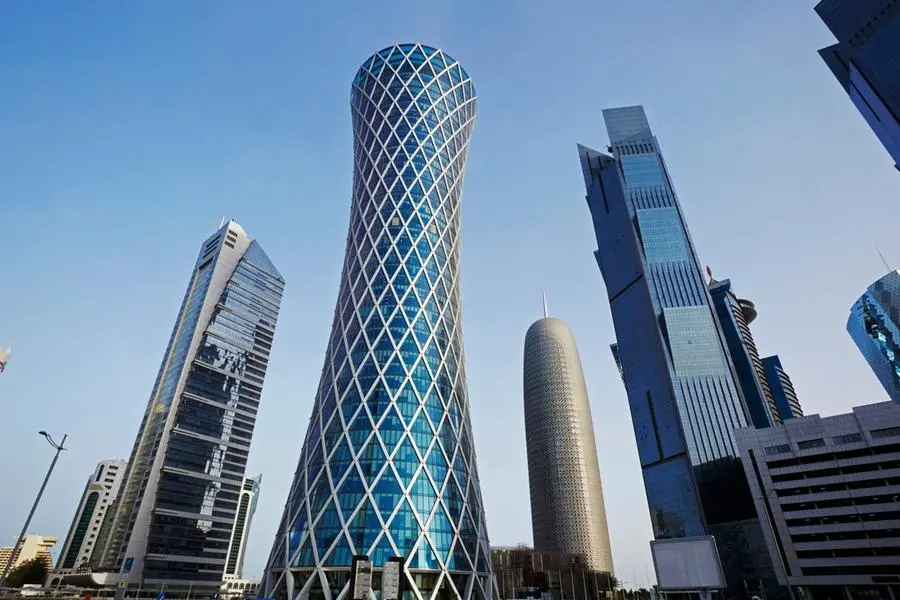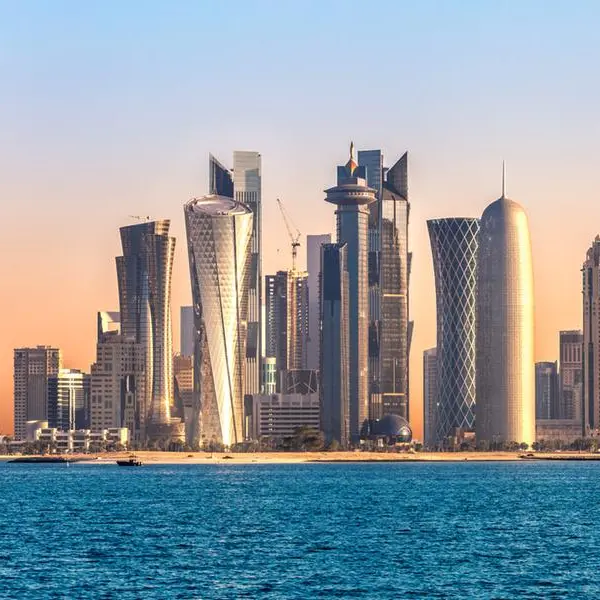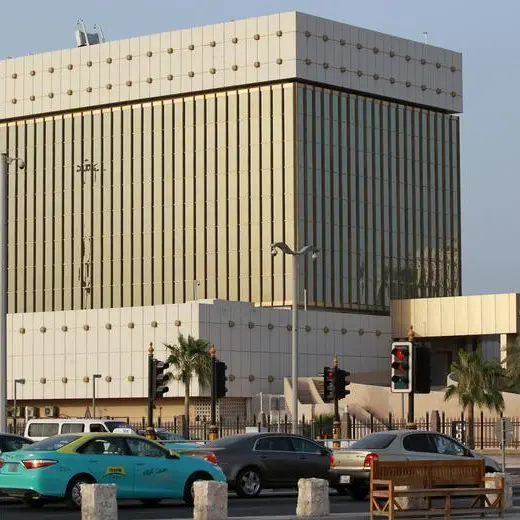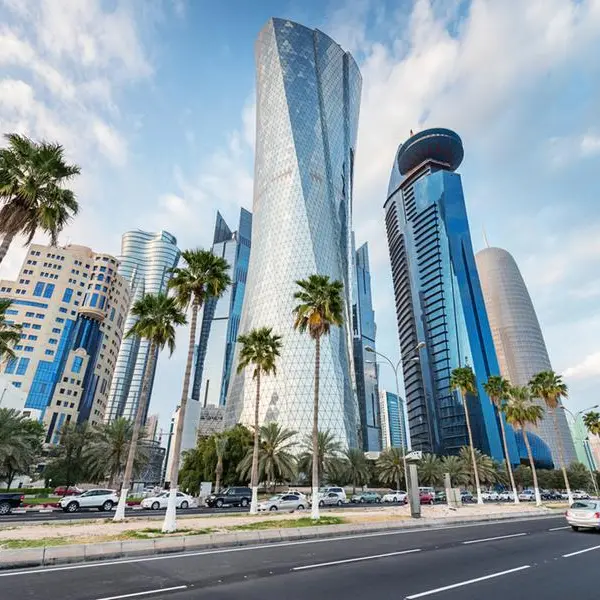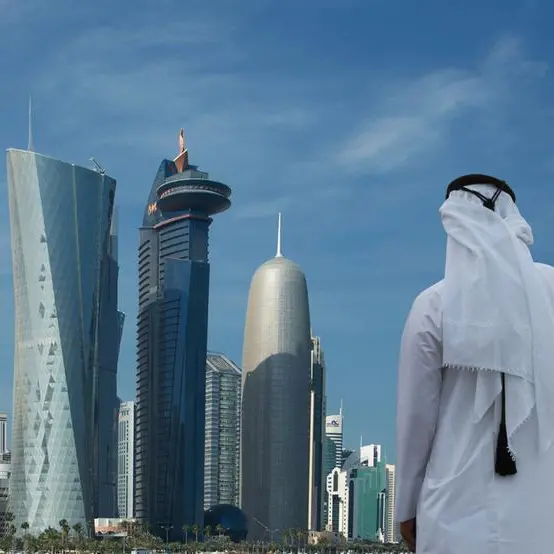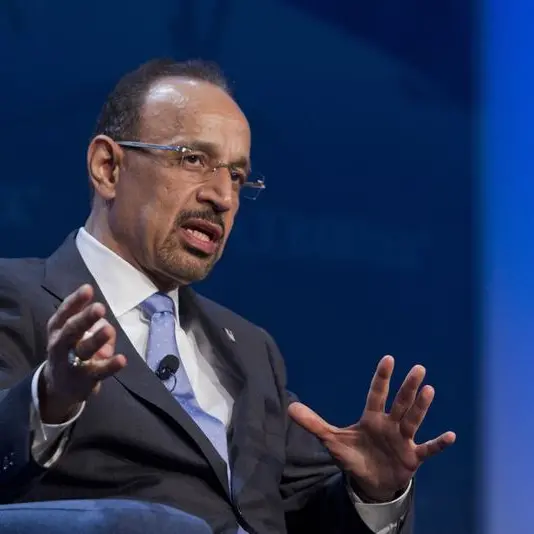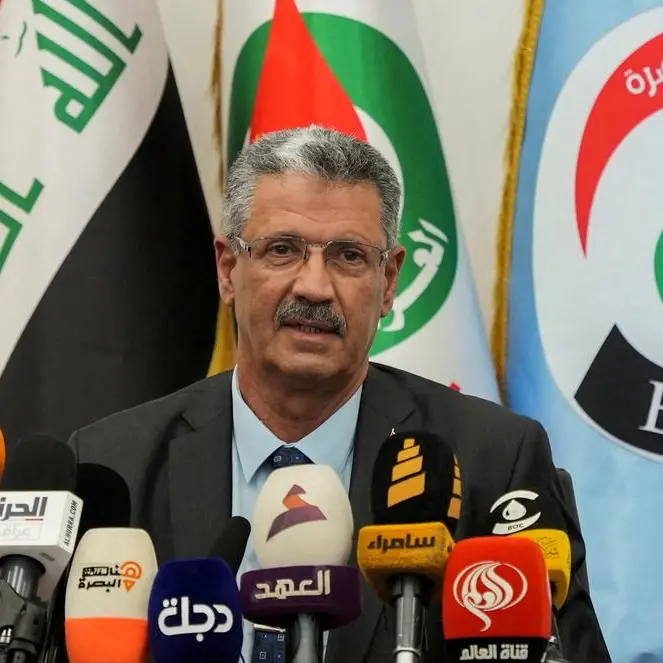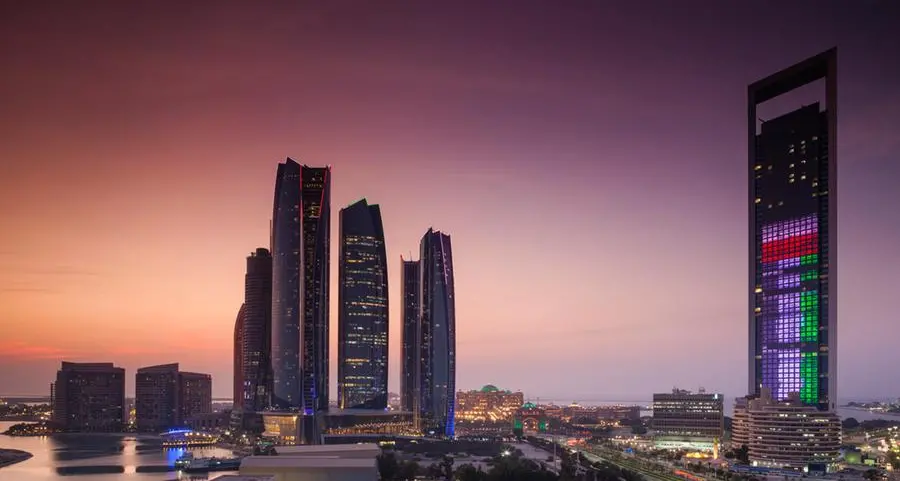PHOTO
Doha, Qatar: The geographical location of the State of Qatar plays an important role in strengthening its economic ties with various countries of the world, and at the same time helps it develop its foreign trade system.
It is characterized by a coastline of 563 km on the western coast of the Arabian Gulf, a transportation infrastructure, a road network, and a developed airport and port, which strengthened its endeavor to take the lead in this field regionally and globally, until it became a link between East and West and Asia and Europe. It also made it a destination for conference tourism and major events, including the Qatar Economic Forum, which also contributed to the promotion of the national economy and investment opportunities.
Qatar’s economy was based on fishing and the pearl trade before the discovery of oil and gas, which changed the features of the state. With the establishment of the city of Zubarah in 1766, the modern history of Qatar began to take shape, as the city became an important economic hub. Since that date, the country has made great strides, to transform from a society based on diving, to the richest country in the world. It exports huge amounts of oil and natural gas around the world, representing 97 percent of its export volume, with a total value estimated at $58 billion.
Its economy has become today the strongest and most developed at the global level, and it has the third largest reserves of natural gas after Russia and Iran, accounting for 13 percent of it. In recent years, it has witnessed rapid changes. The discovery of oil in the middle of the twentieth century led to unprecedented growth, accompanied by a renaissance that continues to this day. The question which arises is how did economic geography help the country strengthen its partnerships and trade alliances and develop its interests Especially since its partners in the field of gas trade around the world are India, China, Japan, South Korea and the United States of America.
Qatar News Agency (QNA) surveyed the opinions of a number of academics, who emphasized the importance of its location in fulfilling renewable gas contracts for decades, and the role of the local private sector, which has become transnational, after it succeeded in forging strong alliances with international trading partners from the main players. According to Qatar Chamber, the value of its exports in the first quarter of 2023, amounted to QR 9.1 billion, achieving a growth of 17.5 percent, compared to its volume in the same quarter of 2022, which amounted to QR 7.73 billion.
Khaled Walid Mahmoud, PhD researcher in political science, said that the strategic location of the State of Qatar contributes to making it a point of convergence between East and West, and between the continents of Africa, Asia and Europe. Geography enhances Qatar’s location on the global economic map, and helps, despite the difficult geopolitical scene, to facilitate access to international markets, especially in the Middle East and Europe, and Qatar dedicates this site to expanding the scope of exporting its products, especially gas, and increasing the volume of trade exchange and developing it with other countries.
He added that the Qatari geography plays an important role in enhancing and developing its trade links, thanks to its seaports, airports and other logistical centers. Hence, the geographical location helped the State of Qatar to be an important hub and a difficult figure in international trade.
He pointed out that this geographical advantage provides easy access to various countries of the world, thanks to its marine transport lines through Hamad Port, which is considered a strategic window on global maritime navigation, and Qatar’s gateway to international trade. He noted the great role also played by Hamad International Airport, which has a five-star rating, and the modern fleet owned by Qatar Airways that contributed to linking Qatar with the globe and helped accelerate the transfer of Qatari exports to various international destinations.
For his part, Dr. Nizam Al Shafei, part-time professor of geography at Qatar University, enumerated the advantages of Qatar’s economic geography, and its natural resources and wealth, which have a direct impact and a vital impact on the national economy, as well as the axis of movement of production outputs to consumption sites and markets, by land, sea and air, citing the achievements of liquefied natural gas carriers in developing Qatari economic relations and developing them in order to achieve common interests. Qatar Airways has also promoted direct and indirect economic exchange around the world, in addition to the integrated, quality and global infrastructure of the ports of Ras Laffan and Hamad Port.
For his part the financial analyst Waleed Al Fuqaha touched on the role played by Qatar’s geography in strengthening trade relations, as its strategic location made it a center for trade and investment for its proximity to the corridors of global communication, which strengthened its location as a focal point in trade exchange, especially in the energy and gas sectors.
He referred to the effective contribution of the infrastructure and facilities granted in attracting strategic partners, which strengthened Qatar’s strategic partnerships with major economies of the world, such as China, the United States of America, and Europe, and provided an attractive environment for foreign direct investment.
Regarding the importance of the states location, Associate Professor of Economics, at the College of Business and Economics at Qatar University Dr. Mahmoud Abdellatif, pointed out that Qatar mediates the countries of the world, and this has achieved economic integration with the Arab Gulf states and the rest of the Arab countries, and other countries in the Middle East region such as Turkiye and Iran. It also increased the volume of its trade exchange with Europe, Africa and Asia.
He added that the geographical distinction enabled the State of Qatar to export gas to many countries in Europe and the Near East, such as Japan and Korea, contributed to achieving a surplus in the Qatari balance of payments, contributed also to doubling the countrys ability to invest in many countries in the region.
On the other hand, Dr. Abdullatif noted the role of Qatar Airways in bringing distances closer and increasing the tourist flow to Qatar, as its network covers many destinations in Africa, Central Asia, Europe, the Far East, South Asia, the Middle East, North America, South America and Oceania, which made Doha in heart of the world. Recent statistics on the most important export destinations of the Qatari private sector issued by Qatar Chamber during the first quarter of this year, reflect the success of Qatar in reaching foreign markets and forging strong alliances with them, as the Asian group of countries, with the exception of the GCC and Arab countries, topped the list of the most important destinations, receiving exports worth QR 6.2 billion, or 68.1 percent of their total. In second place was the GCC group, which received 16.8 percent of total exports, at a value of QR 1.52 billion, the European Union came third, as it received exports of QR1.09 billion, or 12.05 percent, and fourth was the Arab countries, excluding the Gulf countries, with a value of QR159.8 million, or 1.76 percent, the United States of America came fifth with QR 61.9 million, or 0.68 percent, then Africa came sixth, excluding the Arab countries, by 0.29 percent, with an export value of Qr 26.6 million. A group of other European countries ranked seventh, as it received exports of QR14.7 million, which is equivalent to 0.16 percent of total exports, while other American countries ranked eighth with a rate of 0.04 percent and exports amounted to QR 3.9 million, then the Oceania group came ninth with exports amounting to QR 2.3 million, or 0.03 percent of total exports.
The number of countries receiving the sectors exports reached about 96 countries, the group of African countries came at the forefront in terms of number with 29 countries, then the group of Asian countries with 19 countries, followed by the group of European Union countries.
© Dar Al Sharq Press, Printing & Distribution. All Rights Reserved. Provided by SyndiGate Media Inc. (Syndigate.info).
